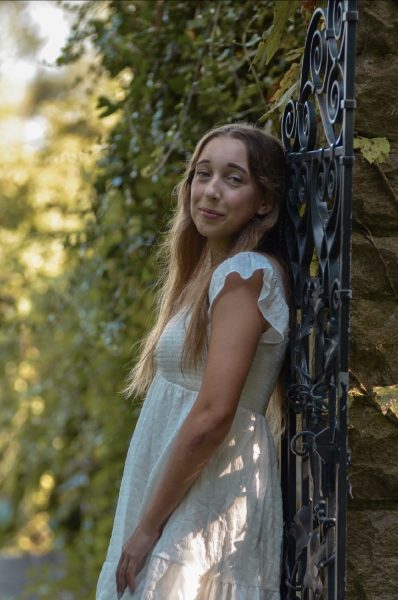With college approaching for most high school students, the decision to play sports in college arises for athletes. Juniors are able to talk to collegiate coaches, seniors are in the process of committing to a team, and sophomores are starting to think about what they want to do.
Underclassmen need to know that coaches are not able to contact an athlete until summer before their junior year, so that they can start planning for what colleges they want to talk to.
There are common misconceptions about the recruitment process. One of those misconceptions is that there is a set plan and every process has to go the same way. However, that is not the case. Although coaches are not able to contact an athlete until summer before their junior year.
Senior Paige Jessuck recently committed to play soccer for Salve Regina University.
Even though Jessuck started to email college coaches in sophomore year, she didn’t start talking to her coach until this past August after she went to an ID camp for Salve over the summer, ultimately confirming her commitment on August 27, 2024.
“It was very hard in the beginning because I didn’t know exactly what kind of school I wanted,” Jessuck says, “I either liked the school and couldn’t play soccer there, or could play there and didn’t like the school.”
Senior, Brielle Kenney recently committed to UMASS Dartmouth to play softball. Brielle also started emailing her coach when she was in her sophomore year of high school. However, she started to email many coaches during her freshman year to introduce herself into the world of college softball.
Many athletes try to show off in front of college coaches however coaches just want to see you being your true self. “My positive attitude and how I pushed myself through hard ruts with my team, and just my pitching in general,” Brielles says that this helped her into improving as a player so colleges would want her to play for them.

When Brielle was deciding what college to commit to, one thing that she did was go to camps. “When I went to a few camps at the school and toured the school I got into see if this is the place I want to go for the next four years of my life,” Kenney said, “It was difficult having to turn down the coaches and colleges I really liked, but it helped me with my decision of where to commit.”
College freshman Grace Muti was recruited to play for Oakland University.
Muti started talking to the coach from Saint Peter’s University the winter of her junior year. After she visited the school Muti’s says that the school was high on her list: “I got an offer at the end of June, I waited about a week with that then I accepted the commitment.”
However, school conditions like the girls on her team, increasing tuition, and her coach leaving the school. Muti said,”After my coach left, I had a month to decide whether or not I wanted to drop my National Letter of Intent, and that was probably the most difficult decision I have made in my entire life.” With more thinking and time, Muti ultimately decided to drop her NLI.

Muti’s coach ended up reaching out to her recently after she dropped her NLI and explained that he needed her position at Oakland University, and then offered her a spot: “I committed that same week and now here I am! This part of the recruiting process is very unique and was very stressful but I am SO happy I took a chance and ended up at Oakland.”
There is no set step-by-step process or specific timeline that athletes need to follow in order to commit to play a sport for a college. There are many ways for athletes to get committed and each athlete needs to find the way that works best for them.


